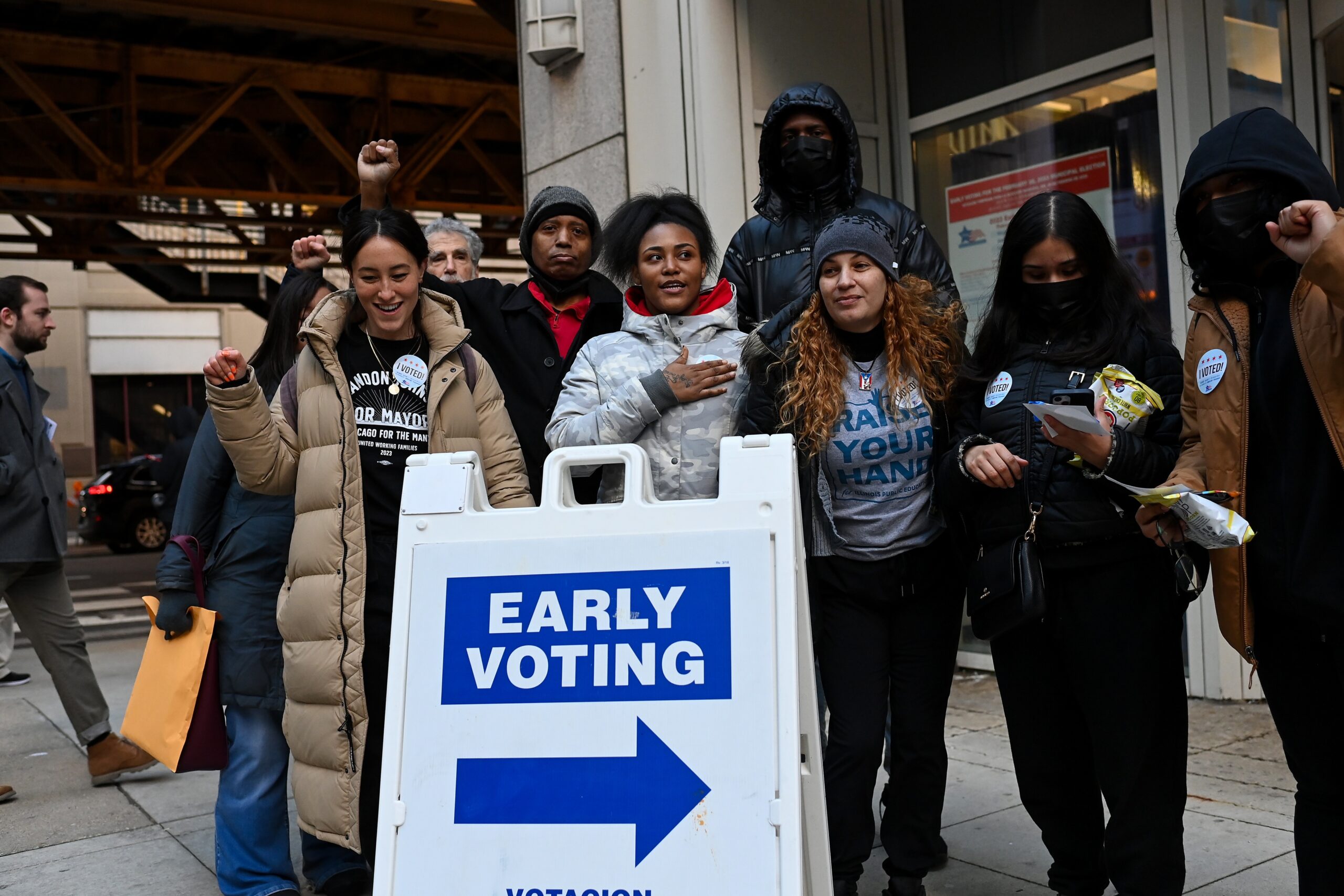While the number of young people intending to vote in next year’s presidential election has fallen compared to four years prior, the decline among young Black voters is the one that is “most pronounced,” according to a new poll released Tuesday.
The Harvard Youth Poll found stark differences in voting intentions among all young voters from different backgrounds and political affiliations. But young Black voters, in particular, stood out because they had the highest percentage, closely followed by young Hispanic voters.
Specifically, the Harvard Youth Poll found that the “decline in voting intention is most pronounced among younger Black Americans” ages 18 to 29.
The poll’s results seemingly don’t bode well for President Joe Biden’s re-election efforts, what with all levels of Black voters disproportionately historically supporting Democrats. However, a closer look at the polling results suggests Republicans could be most adversely affected if the trend keeps up through Election Day 2024.
In particular, about 12% fewer young Black voters said they intend to vote next year than they did in 2019. Four years ago, that number stood at 50%. Now, it’s fallen to just 38%, the poll found in part.
While not broken down along racial lines, the poll found that 18- to 24-year-olds were the ones who expressed the most intention against voting, compared to 25- to 29-year-olds.
If the polling results are an accurate reflection of the American youth voting demographic, they may not affect Biden’s candidacy as much as they might appear since 38% of the respondents identified as independents – a group that also shows a double-digit decline in intentions to vote compared to 2019.
But the largest decline among all youth voters comes from those identifying as Republicans, the poll found.
In 2019, 66% of all young Republican voters said they intended to cast ballots in the 2020 election. This year, that number fell to 56%. Young independent voters also experienced a 10% decline compared to 2019.
Those numbers stand in stark contrast to just 2% fewer young Democrats intending to vote (66%) compared to four years earlier.
The Harvard Youth Poll – which surveyed more than 2,000 people and has a margin of error of nearly 3% – didn’t address the vice presidency. However, past polling has shown that Generation Z is all in when it comes to Vice President Kamala Harris in findings that could have broad implications for the 2024 election.
An Economist/YouGov.com poll conducted between April 29 and May 2 and surveying 1,500 adults found that the nation’s youngest voters from 18- to 29-year-olds overwhelmingly support Harris and expressed their extreme faith in her ability to be president.
When asked whether Harris qualified to be president, 52% of the Gen Z voters responded in the affirmative. That’s second only to Black voters’ 58%.
When it came to the topic of whether Gen Z voters think Harris is honest and trustworthy, 52% of the young respondents said yes. That’s in comparison to 61% of Black voters responding the same way.
Finally, on likeability, 51% of the Gen Z voters surveyed responded in the affirmative regardless of whether they are with her politics. Sixty percent of Black voters responded similarly.
Harris’ approval matters because Republicans have been suggesting the morbid idea that President Joe Biden’s age (he’s 80 years old) increases the chances of him not being able to fully serve another term should he be reelected. Those politics of fear have been employed by conservatives like Republican presidential candidate Nikki Haley in an effort to scare people at the prospects of Harris, 58, becoming president, an ascension that would make her the first woman and Black woman commander-in-chief.

